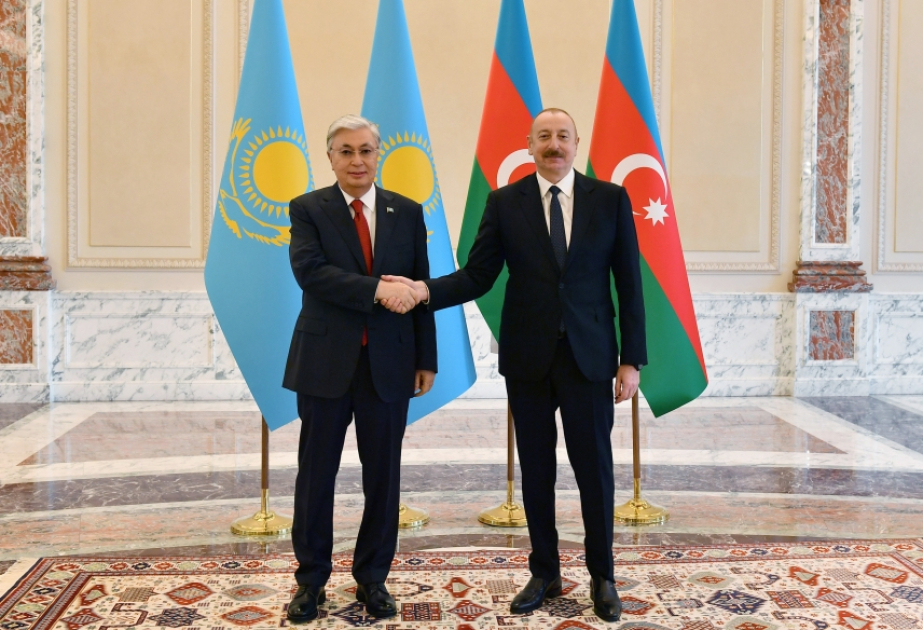BAKU, Azerbaijan, October 20. President Ilham Aliyev’s upcoming state visit to Kazakhstan on October 20-21 is set to mark an important milestone in strengthening bilateral ties and shaping a new balance of power across Eurasia. Azerbaijan and Kazakhstan - two Caspian nations united by shared history, culture, and strategic interests - are increasingly positioning themselves as a vital bridge between Europe and Asia, taking on a central role in the region’s transit, energy, and political landscape.
Over the past few years, economic cooperation between Baku and Astana has deepened significantly. Last year, bilateral trade rose by 50 percent to reach $470 million. In the first half of this year, trade volume continued to grow, hitting $501 million - more than four times higher than in the same period a year earlier. This surge has been driven mainly by the expansion of transport flows along the Trans-Caspian International Transport Route (TITR), which has become one of the main alternatives to northern transit corridors since the start of the war in Ukraine.
Between 2022 and 2023, Kazakhstan also sharply increased oil shipments through Azerbaijani territory - via Baku and onward to Mediterranean ports. For Astana, this is not merely an alternative route but a strategic safeguard against potential disruptions along traditional export paths.
Azerbaijan’s transport and logistics infrastructure - including the Alat and Baku ports and railway hubs integrated into the TITR - has strengthened its role in regional connectivity. At the same time, Kazakhstan is upgrading its Aktau and Kuryk ports, turning the Caspian Sea into a key transit artery of Eurasia.
Beyond economics, political cooperation remains central to bilateral relations. Ties between Azerbaijan and Kazakhstan have reached the level of a strategic partnership - a definition that goes beyond formal rhetoric. Over the past five years, the two countries have held more than a dozen high-level visits between their presidents and prime ministers, as well as regular meetings within international organizations. "The political relations between Azerbaijan and Kazakhstan today are distinguished by a high degree of strength and mutual trust," President Ilham Aliyev has said.
A major factor in this political alignment is their shared historical and cultural foundation. Both countries are active members of the Organization of Turkic States (OTS), which Baku and Astana view not only as a platform for cultural diplomacy but also as a mechanism for building new centers of influence across Eurasia.
The two countries enjoy a high level of trust and predictability. They avoid public disagreements, consistently support each other in international forums, and increasingly align their positions on key regional issues - from transport and energy security to integration initiatives.
Another promising area of cooperation is future energy. Kazakhstan has shown growing interest in using Azerbaijani infrastructure to export not only hydrocarbons but also green energy, including hydrogen and electricity from renewable sources. Joint efforts in this sphere could turn the Caspian into not just an oil and gas hub but also a climate-oriented transport and energy corridor.
Amid global geopolitical shifts, Azerbaijan and Kazakhstan have found themselves in a unique position. Both countries pursue balanced foreign policies, maintaining constructive relations with both the West and the East while avoiding direct confrontations. Their partnership along the Caspian axis has become a stabilizing and predictable force in Eurasia.
For Baku and Astana, the challenge - and opportunity - lies not only in expanding trade and transit, but also in building a resilient framework of cooperation capable of withstanding external shocks and offering the region new paths for growth. As new Eurasian transport routes and energy configurations take shape, the partnership between Azerbaijan and Kazakhstan could become a driving force in transforming the region’s transport and economic landscape.







